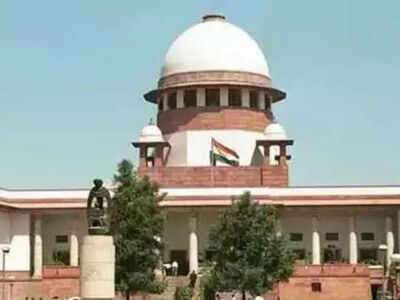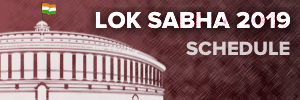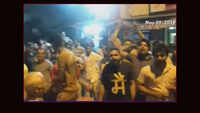
Highlights
NEW DELHI: In an important judgment, the Supreme Court has ruled that the right to be represented by a lawyer does not extend to in-house proceedings, closing the lid on arguments of activist-lawyers who have protested against the absence of legal assistance to the sacked SC employee who has levelled sexual harassment charge against Chief Justice of India Ranjan Gogoi.
The woman complainant had said that she felt intimidated while facing an in-house committee of SC judges comprising Justice S A Bobde, Indira Banerjee and Indu Malhotra and sought the presence of her lawyer Vrinda Grover. She had also said that she and her husband were followed and that there should be an outside independent member on the panel set up to probe the charges against the CJI.
The SC ruling on Wednesday came in a case about an individual facing in-house proceedings of a bank to declare him a wilful defaulter; an offence which entails serious civil and criminal consequences, including denial of the fundamental right to carry out lawful business. The in-house proceedings by a bank for declaring a person wilful defaulter involves presentation of evidence and its appreciation, summoning of borrowers and promoters and recording of submissions before issuance of an order.
A person declared wilful defaulter by the first committee can appeal before a review committee. The Supreme Court ruled that in both these committees, a person has no right to be represented by a lawyer. The Delhi high court ruled that as the two committees can be considered tribunals, a lawyer has the right to represent his client before such committees.
State Bank of India (SBI) through advocate Sanjay Kapur had challenged the high court verdict in the apex court. Arguing before a bench of Justices R F Nariman and Vineet Saran, amicus curiae and senior advocate Parag Tripathi said advocates have a right to practise before any tribunal. Secondly, he said as declaration of a person as wilful defaulter entails serious criminal and civil consequences and results in violation of his fundamental right to carry on his business under Article 19(1)(g) of the Constitution, the person facing in-house proceedings must be given assistance of a lawyer. Appearing for banks, senior advocates Neeraj K Kaul, B B Sawhney and Pritesh Kapur argued that inhouse committees were not tribunals and showed many judgments of the Supreme Court which ruled that “right to legal representation is no part of the right of natural justice”.
After perusing the case laws, Justices RF Nariman and Vineet Saran said, “We are of the view that there is no right to be represented by a lawyer in in-house proceedings, as it is clear that the events of wilful default would only relate to the individual facts of each case”. “What has typically to be discovered is whether a unit has defaulted in making its payment obligations even when it has the capacity to honour the said obligation; or that it has borrowed funds which are diverted for other purposes, or siphoned off funds so that the funds have not been utilised for the specific purpose for which the finance was made available,” said Justice Nariman, who authored the judgment that set aside the high court verdict allowing lawyers to represent borrowers in wilful default in-house proceedings.
“Whether a default is intentional, deliberate and calculated is against question of fact which the lender may put to the borrower in a showcause notice to elicit the borrower’s submissions on the same,” the bench said.
The woman complainant had said that she felt intimidated while facing an in-house committee of SC judges comprising Justice S A Bobde, Indira Banerjee and Indu Malhotra and sought the presence of her lawyer Vrinda Grover. She had also said that she and her husband were followed and that there should be an outside independent member on the panel set up to probe the charges against the CJI.
The SC ruling on Wednesday came in a case about an individual facing in-house proceedings of a bank to declare him a wilful defaulter; an offence which entails serious civil and criminal consequences, including denial of the fundamental right to carry out lawful business. The in-house proceedings by a bank for declaring a person wilful defaulter involves presentation of evidence and its appreciation, summoning of borrowers and promoters and recording of submissions before issuance of an order.
A person declared wilful defaulter by the first committee can appeal before a review committee. The Supreme Court ruled that in both these committees, a person has no right to be represented by a lawyer. The Delhi high court ruled that as the two committees can be considered tribunals, a lawyer has the right to represent his client before such committees.
State Bank of India (SBI) through advocate Sanjay Kapur had challenged the high court verdict in the apex court. Arguing before a bench of Justices R F Nariman and Vineet Saran, amicus curiae and senior advocate Parag Tripathi said advocates have a right to practise before any tribunal. Secondly, he said as declaration of a person as wilful defaulter entails serious criminal and civil consequences and results in violation of his fundamental right to carry on his business under Article 19(1)(g) of the Constitution, the person facing in-house proceedings must be given assistance of a lawyer. Appearing for banks, senior advocates Neeraj K Kaul, B B Sawhney and Pritesh Kapur argued that inhouse committees were not tribunals and showed many judgments of the Supreme Court which ruled that “right to legal representation is no part of the right of natural justice”.
After perusing the case laws, Justices RF Nariman and Vineet Saran said, “We are of the view that there is no right to be represented by a lawyer in in-house proceedings, as it is clear that the events of wilful default would only relate to the individual facts of each case”. “What has typically to be discovered is whether a unit has defaulted in making its payment obligations even when it has the capacity to honour the said obligation; or that it has borrowed funds which are diverted for other purposes, or siphoned off funds so that the funds have not been utilised for the specific purpose for which the finance was made available,” said Justice Nariman, who authored the judgment that set aside the high court verdict allowing lawyers to represent borrowers in wilful default in-house proceedings.
“Whether a default is intentional, deliberate and calculated is against question of fact which the lender may put to the borrower in a showcause notice to elicit the borrower’s submissions on the same,” the bench said.
Download The Times of India News App for Latest India News.
#ElectionsWithTimes
more from times of india news
Elections 2019

Trending Topics
LATEST VIDEOS
More from TOI
Navbharat Times
Featured Today in Travel
Quick Links
Rajasthan election 2019Andhra Lok Sabha electionGujarat Election 2019Karnataka Election 2019MP Lok Sabha electionMaharashtra election 2019West Bengal Lok SabhaTamil Nadu election 2019UP Election 2019Bihar election 2019UP Election DateAndhra Election DateBihar Election DateAndhra Assembly ElectionLok SabhaMP Election DateMaharashtra Election DateShiv SenaYSRCPTDPWB Election DateJDUCongressBJP newsGujarat Election DateSC ST ActUIDAIIndian ArmyISRO newsSupreme CourtRajasthan Election DateTelangana Election DateTamilrockers 2018Uttarakhand newsSikkim newsOrrisa newsKarnataka Election DateNagaland newsSatta KingManipur newsMeghalaya news
Get the app










